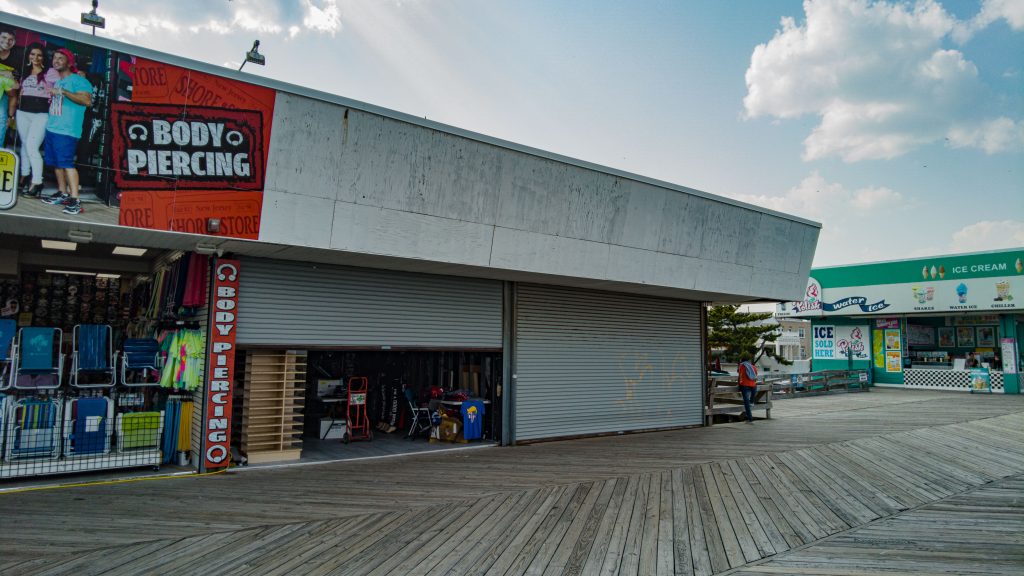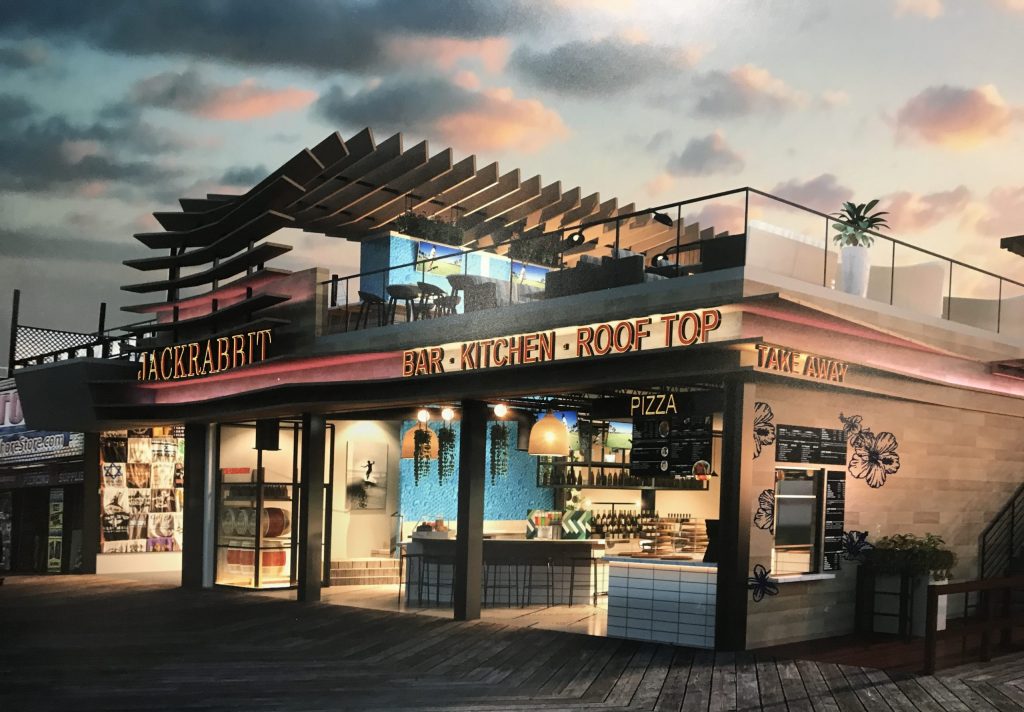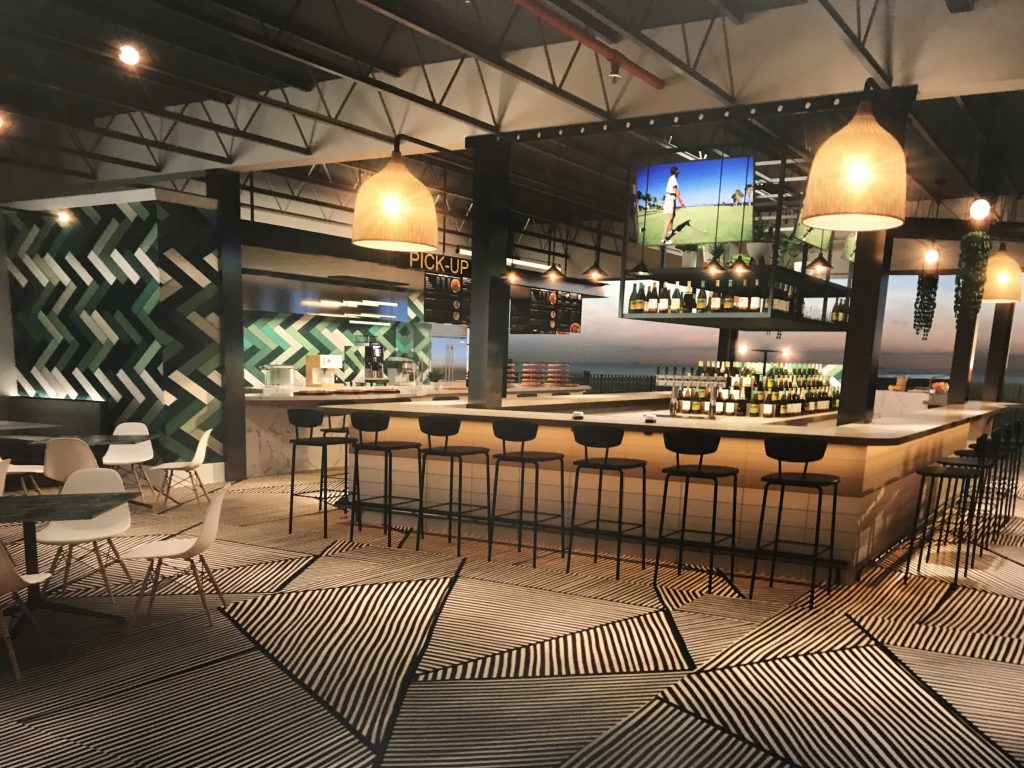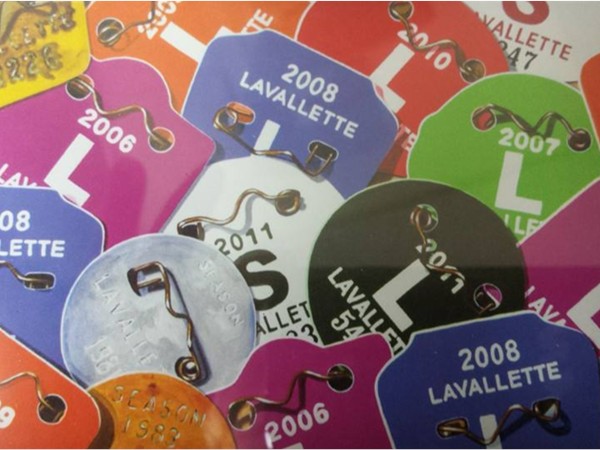A proposed bar that has been the subject of litigation for multiple years and has even seen an ownership change in the midst of the case will not be opening on the Seaside Heights boardwalk.
The case of “Fresh Cut Fries,” the holding company that owned the parcel of land now held by boardwalk businessman Danny Merk, is officially over, with the borough having prevailed.
The planning board in 2020 denied an application by Fresh Cut Fries LLC to build a restaurant and bar with a rooftop section at 1219 Boardwalk, next door to what has become known as the “Jersey Shore” house from its portrayal on the MTV series bearing the same name. But a zoning ordinance passed in early March of that year placed restrictions on new dining establishments on the northern portion of the Seaside Heights boardwalk, effectively outlawing nightclubs or establishments that could be converted into one after dark. Because the application had been made shortly before the ordinance was passed, however, the board applied the previously-worded zoning code to its decision. Still, the existing restrictions prevented the new establishment from gaining approval.
Fresh Cut Fries, which had been owned by Marc Pollaro, sued within weeks of the board’s denial of the application pitching his restaurant to the board. His attorney, Stephen P. Sinisi, argued that because Seaside Heights had not re-examined its master plan in about 15 years, all of its zoning ordinances could no longer be considered reasonable. Since the litigation was filed, that re-examination has been completed.
Borough Administrator Christopher Vaz, who sits on the planning board, said the property developers “couldn’t establish that the restaurant use was the primary use,” which was required under the ordinance.
Last year, another wrinkle in the case emerged when it was revealed that Pollaro had sold the property in Jan. 2023 to Merk for $1,479,000. This led to a motion requesting the case be dismissed since the applicant pitching the restaurant no longer owned the business. In turn, a hand-written lease was submitted to the court, ostensibly serving as proof that the restaurant and bar proposal was still in play, despite questions as to whether the “lease” constituted a legal document, or that the original applicant had agreed to rent the property from the new owner.
Finally, last year, Superior Court Judge Valter Must, after three years of dueling, back-and-forth motions remanded the case back to the Seaside Heights planning board, ordering the board to come to a decision on two questions – one involving jurisdiction and one involving the reasonability of the zoning ordinance at the time given the lack of a recent re-examination study.

The site of a proposed restaurant and bar at 1219 Ocean Terrace, Seaside Heights, N.J. (Photo: Shorebeat)
A settlement was unanimously rejected by the board last year, which left board attorney Steven A. Zabarsky tasked with plowing ahead on the matter in court or seeking a different way in which to dispose of the case. Last week, the litigation came to an end.
“Tonight’s hearing is for a determination of standing of the complainant in the case,” Zabarsky told board members. “To avoid any necessary testimony, the matter has been withdrawn. The plaintiffs have withdrawn their complaint, we signed a stipulation of dismissal, and the case is over.”
The last correspondence in the case asked Must to force the planning board to make a ruling notwithstanding that 8-0 vote declaring the jurisdictional issue dead in the previous settlement discussion due to the ownership change.
“For the record, it is plaintiff’s position that the board should hear and decide both issues remanded to it, even if the board concludes that plaintiff’s lack standing as a result of the January sale of the property and the lease does not create an enforceable interest in the property enabling plaintiffs to maintain their lawsuit,” Sinisi wrote in May.
The next correspondence was a two-paragraph document submitted March 4, 2024, with both parties agreeing to end the case without any judgments being entered.
“It’s settled by withdrawal of the complaint, so the denial of the board stands and there can be no more appeals,” Zabarsky said.
The borough council passed the re-zoning ordinance since the northern portion of the boardwalk is considered to have become more residential in nature and valued for its quieter pace as compared to the middle and southern portions, which include bars, arcades and rides. With the Fresh Cut Fries case resolved, there will be no more applications accepted for bars north of EJ’s, an existing establishment on Sheridan Avenue.

Advertisement

Seaside Heights & Seaside Park
Reminder: Boardwalk Halloween Costume Contest, Free Carousel Rides This Weekend in Seaside Heights

Police, Fire & Courts
Seaside Heights Woman Indicted for Murder, Dismembering Body in ‘House of Horrors’ Case

Seaside Heights & Seaside Park
Seaside Heights Italian Festival, Columbus Day Parade to Return Oct. 11-13

Seaside Heights & Seaside Park
Dramatic Water Rescues Occur in Seaside Park As Rip Current Warning Remains in Effect

Ortley Beach & North Beaches
Abandoned Private Island ‘Mansion’ in Barnegat Bay Poised for Demolition








